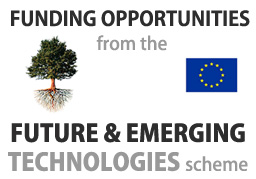Embodied Intelligence Summer School
The EMBODYi Projects
Summer School on Embodied Intelligence
September 20-24, 2010, Livorno, Italy
Invited Speaker
Prof. Rolf Pfeifer
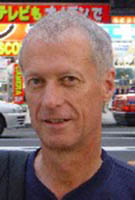
Prof. Rolf Pfeifer received his masters degree in physics and mathematics and his Ph.D. in computer science from the Swiss Federal Institute of Technology (ETH) in Zurich, Switzerland. He spent three years as a post-doctoral fellow at Carnegie-Mellon University and at Yale University in the US. Since 1987 he has been a professor of computer science at the Department of Informatics, University of Zurich. He is the director Artificial Intelligence Laboratory at University of Zurich. He has organized a number of conferences and research projects such as "The 50th Anniversary World Summit of Artificial Intelligence" in Switzerland, 2006. He is also on the evaluation and consulting board of the "Mobilligence" project in Japan. His research interests are in the areas of embodiment, biorobotics, artificial evolution and morphogenesis, self-reconfiguration and self-repair, and educational technology. He is the author of the book "Understanding Intelligence" (with C. Scheier). A popular science book, entitled "How the body shapes the way we think: a new view of intelligence," has recently been published by MIT Press (with Josh Bongard). Rolf Pfeifer is currently setting up the “The ShanghAI Lectures 1.1”, a mixed-reality lecture series which was broadcast from Jiao Tong University in Shanghai in 2009, and will be broadcast from Zurich in 2010. On-line interactive videoconferencing will be mixed with 3-D virtual collaborative environments. The project has the goal to build a world-wide cross-cultural community and knowledge source in embodied intelligence and related areas.
Prof. Auke Jan Ijspeert
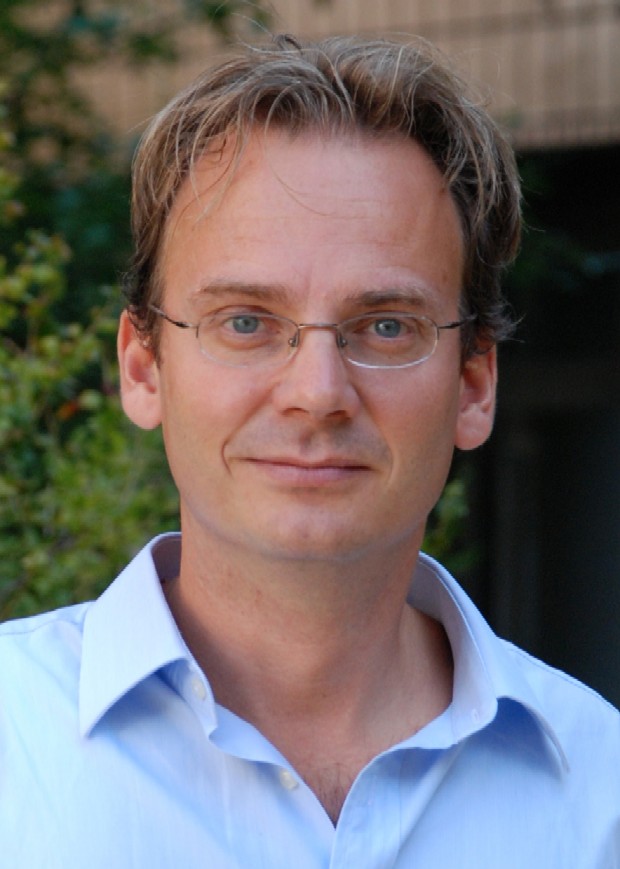
Prof. Auke Jan Ijspeert is Associate Professor at the EPFL (the Swiss Federal Institute of Technology at Lausanne), and head of the Biorobotics Laboratory (BioRob), previously the Biologically Inspired Robotics Group (BIRG). He has a BSc/MSc in Physics from the EPFL, and a PhD in Artificial Intelligence from the University of Edinburgh (with John Hallam and David Willshaw as advisors). He carried out postdocs at IDSIA and EPFL (LAMI) with Jean-Daniel Nicoud and Luca Gambardella, and at the University of Southern California (USC), with Michael Arbib and Stefan Schaal. He then became a research assistant professor at USC, and an external collaborator at ATR (Advanced Telecommunications Research institute) in Japan. In 2002, he came back to the EPFL first as a SNF assistant professor, and since October 2009 as an associate professor (with tenure). His research interests are at the intersection between robotics, computational neuroscience, nonlinear dynamical systems, and applied machine learning. He is interested in using numerical simulations and robots to get a better understanding of animal locomotion and movement control, and in using inspiration from biology to design novel types of robots and locomotion controllers ( Ijspeert et al, Science, Vol. 315. no. 5817, pp. 1416 - 1420, 2007 ). With his colleagues, he has received the Best Paper Award at ICRA2002, the Industrial Robot Highly Commended Award at CLAWAR2005, and the Best Paper Award at the IEEE-RAS Humanoids 2007 conference. He is an associate editor for the IEEE Transactions on Robotics, and has acted as guest editor for the IEEE Transactions on Biomedical Engineering, Autonomous Robots, and Biological Cybernetics. He is/was the Technical Program Chair of 5 international conferences (BioADIT2004, SAB2004, AMAM2005, BioADIT2006, LATSIS2006), and has been a program committee member of over 40 conferences. For more information, pubblications, courses, books and contacts see the Biorobotics Laboratory page.
Prof. Paolo Dario
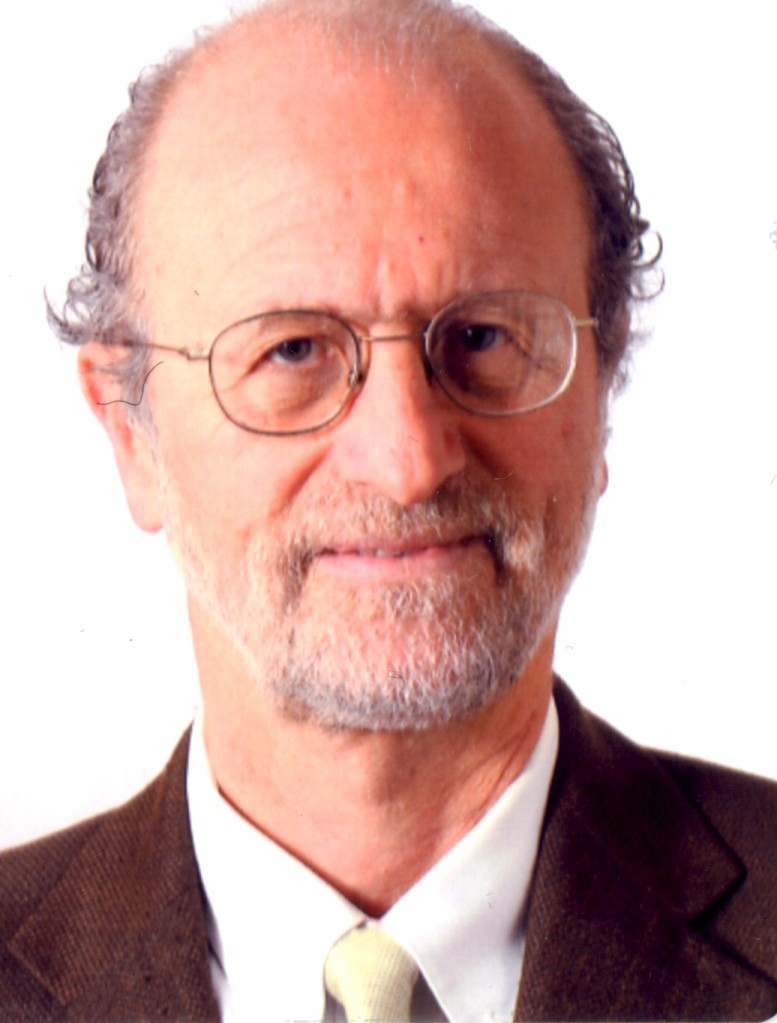
Prof. Paolo Dario received his Dr. Eng. Degree in Mechanical Engineering from the University of Pisa, Italy, in 1977. He is currently Professor of Biomedical Robotics at the Scuola Superiore Sant'Anna in Pisa. He has been Visiting Professor at Brown University, Providenc received his Dr. Eng. Degree in Mechanical Engineering from the University of Pisa, Italy, in 1977. He is currently Professor of Biomedical Robotics at the Scuola Superiore Sant'Anna in Pisa. He has been Visiting Professor at Brown University, Providence, RI, USA, at the Ecole Polytechnique Federale de Lausanne (EPFL), Lausanne, Switzerland, at Waseda University, Tokyo, Japan, at the College de France, Paris, at the Ecole Normale Supérieure de Cachan, France, and at Zhejiang University, China. He was the founder of the ARTS (Advanced Robotics Technologies and Systems) Laboratory and is currently the Co-ordinator of the CRIM (Center for the Research in Microengineering) Laboratory of the Scuola Superiore Sant'Anna, where he supervises a team of about 70 researchers and Ph.D. students. He is also the Director of the Polo Sant'Anna Valdera of the Scuola Superiore Sant'Anna. His main research interests are in the fields of medical robotics, bio-robotics, mechatronics and micro/nanoengineering, and specifically in sensors and actuators for the above applications, and in robotics for rehabilitation. He is the coordinator of many national and European projects, the editor of two books on robotics, and the author of more than 250 scientific papers (more than 150 on ISI journals). He is Editor-in-Chief, Associate Editor and member of the Editorial Board of many international journals. He has been a plenary invited speaker in many international conferences. Prof. Dario has served as President of the IEEE Robotics and Automation Society in the years 2002-2003. He has been the General Chair of the BioRob'06 Conference (The First IEEE/RAS-EMBS International Conference on Biomedical Robotics and Biomechatronics), of ICRA 2007 (International Conference on Robotics and Automation), ISG 2008 (the 6th Conference of the International Society for Gerontechnology) and of the First National Congress of Bioengineering (GNB 2008). Prof. Dario is an IEEE Fellow, a Fellow of the European Society on Medical and Biological Engineering, and a recipient of many honors and awards, such as the Joseph Engelberger Award. He is also a member of the Board of the International Foundation of Robotics Research (IFRR). In 2009 He has been appointed Fellow of the School of Engineering of the University of Tokyo.
Prof. Benny Hochner
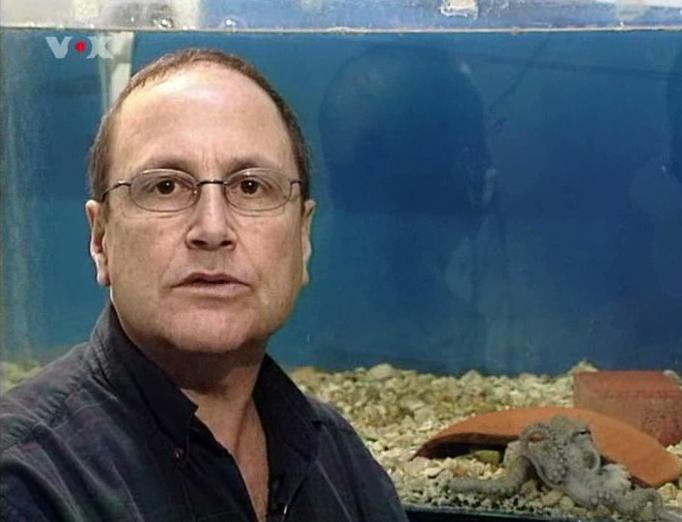
Prof. Benny Hochner studied Neurobiology at the Hebrew University of Jerusalem (PhD 1983). Did his postdoctoral training with Prof. Eric Kandel (Nobel Laureate for Medicine, 2000) at Columbia University. Returned to the Hebrew University of Jerusalem as a Research Fellow at Otto Loewi Center and later became Independent researcher at the department of Neurobiology. Currently he is an Associate Professor of Neurobiology at the Department of Neurobiology, Institute of Life Sciences and a Member of the Interdisciplinary Center for Neural Computation of the Hebrew University. He is the Principal Investigator of the Octopus Group of the Hebrew University of Jerusalem. Prof. Hochner is involved in octopus arms research as inspiration for robotics since 1994. His research was supported by the US Navy and DARPA until 2006 and by the Israel Science Foundation. In parallel, Prof. Hochner studies the neurobiology of learning and memory in the octopus. During this time Prof. Hochner published, as a senior author, 20 papers on these subjects in high ranking journals including Nature, Science, Current Biology Journal of Neuroscience, etc. He is now involved in the OCTOPUS Integrating Project for the study of the neuromuscular system of the octopus arm, the octopus central and peripheral motor control, the arm biomechanics.
Prof. Barbara Webb

Prof. Barbara Webb is a reader at the University of Edinburgh, Member of Informatics Life-Sciences Institute Associate, Member of Institute for Adaptive and Neural Computation, Member of Institute of Perception, Action and Behaviour and the head of the Cricket Lab. She joined the School of Informatics at the University of Edinburgh in May 2003. Previously she has lectured at the University of Stirling (1999-2003), the University of Nottingham (1995-1998) and the University of Edinburgh (1993-1995). She received her Ph.D. (in Artificial Intelligence) from the University of Edinburgh in 1993, and her B.Sc. (in Psychology) from the University of Sydney in 1988. She is a pioneer in the new research area of Biorobotics, studying how to make robots that emulate or simulate biological organisms computationally and physically. She has co-edited the first book on the topic together with Thomas Consi and she is the author of numerous articles that show how a robot can serve as a tool for biologists. Her main research interests are perceptual systems for the control of behavior. The work is largely concerned with building computational and physical models of these mechanisms to explicate and evaluate hypotheses. In particular she focuses on insect behaviours, as their smaller nervous systems may be easier to elucidate. Recent work has focussed on some of the more complex capabilities of insects, including multimodal intergration, navigation and learning. She also have an interest in theoretical issues of methodology; in particular the problems of measurement, modeling and simulation.
Prof. Eugenio Guglielmelli
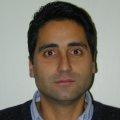
Prof. Eugenio Guglielmelli received the Laurea degree in Electronics Engineering and the PhD in Biomedical Robotics from the University of Pisa, Italy, in 1991 and in 1995. He is currently Associate Professor of Bioengineering at Campus Bio-Medico University (Roma, Italy) where he serves as the Head of the Laboratory of Biomedical Robotics and Biomicrosystems, that he founded in 2004. He teaches Biomechatronics and Rehabilitation Bioengineering at UNICAMPUS. His main current research interests are in the fields of novel theoretical and experimental approaches to human-centered robotics and to biomorphic control of mechatronic systems, and in their application to basic neuroscience, behavioural analysis, robot-mediated motor therapy, assistive robotics, neuro-robotics and neuro-developmental engineering. He is author/co-author of more than 170 publications appeared on peer-reviewed international journals, books and procs. of international conferences. He is also co-author of three international patents, and founding member of four academic spin-off companies.
Prof. Tamar Flash
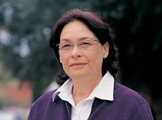
Prof. Tamar Flash received her PhD in Medical Physics from the Harvard-MIT division of Health Science and Technology. She conducted her Post-Doc training in the department of Brain and Cognitive Science and the Artificial Intelligence laboratory at MIT. Since 1985 she has been working at the Dept of CS and Applied Math at the Weizmann Institute of Science. She has been involved in octopus movement control research as an inspiration for robotics since 1994. Her research was supported by the US Navy, DARPA and by the Israel Science Foundation. The main focus of her research is on motor control in humans and robotic systems. This research combines experimental work in human subjects with the development of mathematical models that formulate alternative hypotheses concerning motion planning and control strategies by the brain. This combined research helps in gaining insight into human motor control and subserves the development of motion planning and control algorithms for artificial robotic systems. In particular, together with colleagues she studies the principles that underlie the selection and planning of human 2D and 3D arm movements during reaching, drawing and grasping tasks. The comparison of motor performance in neurologically healthy human subjects with that of patients suffering from various movement disorders contributes to the understanding of the pathophysiological processes underlying such disorders. One of her current interests is in the topic of motor learning in humans and in the development of learning capabilities for robotic systems. Another current interest is in developing mathematical formalisms based on differential geometry and Lie Algebra to investigate motion planning strategies and the resolution of task and kinematic redundancy problems associated with multi-degrees of freedom moments in biological and robotic systems. An additional current interest is in investigating the neural control of flexible hyper-redundant arms as in the Octopus.
